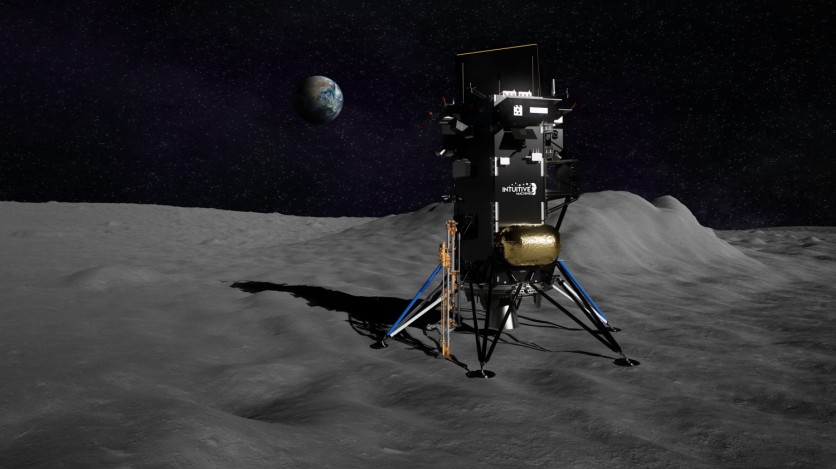Intuitive Machines has unveiled its readiness to launch its Nova-C lunar lander to the moon this September. Among a group of US companies dedicated to crafting lunar landers, Intuitive Machines is actively competing for valuable NASA contracts intended to transport scientific payloads to the lunar terrain.

Nova-C Lunar Lander Set for Moon Launch in September
Intuitive Machines has announced the imminent readiness of its 3-meter-tall Nova-C lander for its upcoming mission. During a recent earnings call, Interesting Engineering reported that co-founder and chief executive of Intuitive Machines Steve Altemus revealed a significant development.
Altemus noted that they had successfully completed the construction of their Nova-C lander. Altemus confidently highlighted their readiness, stating they would be fully prepared to launch a functional lunar lander in September.
This announcement marked a significant milestone for the Houston-based company, underscoring its active role in driving the progress of lunar exploration.
Earlier this year, Astrobiotic revealed that its Peregrine lander was fully assembled and prepared for its mission. However, the launch date was postponed due to delays in the debut of United Launch Alliance's (ULA) advanced Vulcan Centaur rocket.
Reports suggest the mission could be launched by mid-December, although the timeline might extend into the following year. In contrast, Ars Technica reported that Intuitive Machines' Nova-C might take flight ahead of Astrobiotic's Peregrine lander.
The Nova-C has secured a spot on a SpaceX Falcon 9 rocket, which currently boasts the highest reliability for launches annually. Notably, the Falcon 9 has already completed over 50 successful launches this year alone, making it a prime candidate for swift and efficient deployment.
Intuitive Machines Competing With Other Companies
The company finds itself in competition with fellow American enterprises, such as Astrobotic and Firefly, in the race for NASA-funded missions aimed at transporting scientific experiments and various payloads to the moon's surface.
In May 2019, Intuitive Machines and Astrobotic secured NASA's initial "Commercial Lunar Payload Services" contracts. However, each of these companies is experiencing a delay of approximately two years in developing their lunar landers.
In the forthcoming weeks and months, a wave of lunar lander missions is poised to unfold, shaping an intensified period of lunar activity.
Among these endeavors, Russia's Luna-25 has recently achieved a significant milestone, entering lunar orbit on August 15, marking its return to lunar exploration after nearly five decades.
On the other hand, India's Chandrayaan-3 lunar lander, which commenced its lunar orbit in early August, contributes to this burgeoning lunar presence.
A shared objective unites these missions: they are all destined for the lunar south pole. This area has garnered considerable attention due to its perceived abundance of ice water, making it a focal point for forthcoming lunar ventures.
Intuitive Machines is poised to achieve a significant milestone by becoming the inaugural private American company to successfully land a spacecraft on the moon.
According to TechCrunch, the company is eyeing a specific timeframe, a six-day window commencing on November 15, to launch its IM-1 lunar lander mission utilizing a SpaceX Falcon 9 rocket.
With a NASA contract as part of the "Commercial Lunar Payload Services" initiative, Intuitive Machines stands alongside two other firms, Astrobotic and OrbitBeyond (the latter later withdrew from the program), entrusted with delivering essential payloads to the lunar surface.
Related Article : NASA's Artemis Missions for Moon Settlement to Open $100 Billion Market for Private Companies

ⓒ 2025 TECHTIMES.com All rights reserved. Do not reproduce without permission.




